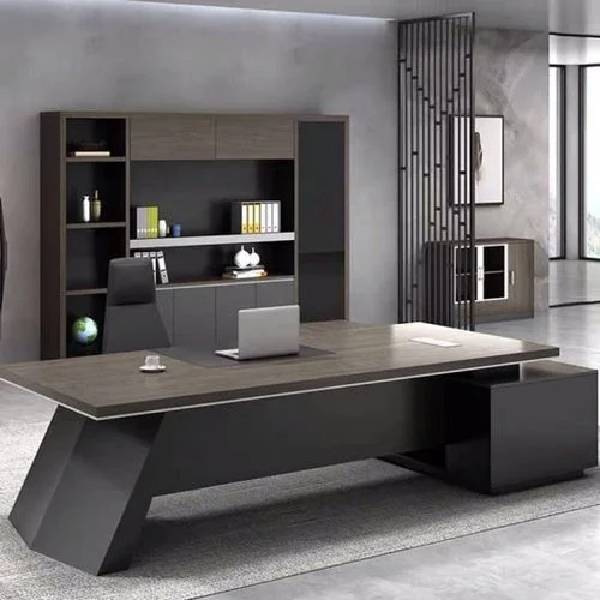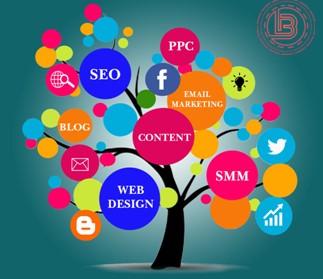In today's digital age, having a strong online presence is crucial for businesses to succeed.…

The Evolution of Workspaces and Modern Office Table
In the ever-evolving landscape of the modern workplace, office furniture plays a crucial role in shaping the way we work. One integral element of office furniture that has undergone significant transformations in recent years is the office table. From ergonomic designs to smart features, the innovations in office tables are not just about aesthetics but also about enhancing productivity, collaboration, and employee well-being.
Modern Office Tables:
The first wave of innovation in modern office tables is centered around ergonomics and employee health. Recognizing the impact of prolonged sitting on health, designers have prioritized adjustable desks that allow users to switch between modern office tables sitting and standing positions. These height-adjustable tables not only promote a healthier lifestyle but also contribute to increased energy levels and improved focus among employees.
Moreover, ergonomic chairs designed to complement these adjustable tables have become commonplace, ensuring that employees maintain proper posture and reduce the risk of musculoskeletal issues. These advancements reflect a growing awareness of the importance of employee well-being and its direct correlation to overall productivity.
Collaborative Spaces:
With the rise of collaborative work environments, office tables have evolved to facilitate teamwork and communication. Modular and flexible table designs allow for easy reconfiguration of office layouts to accommodate various team sizes and project requirements. Some innovative tables come with built-in technology, such as integrated power outlets and wireless charging pads, creating a seamless and efficient workspace.
Additionally, communal tables with shared work surfaces are gaining popularity, encouraging spontaneous interactions and fostering a sense of community among employees. These tables often include features like privacy screens and acoustic panels to strike a balance between collaboration and individual focus.
Office Table Philippines:
The integration of smart technology into office furniture represents the cutting edge of innovation. Smart office tables go beyond basic office table philippines connectivity, incorporating features like touch-sensitive surfaces, embedded digital displays, and IoT (Internet of Things) capabilities. These tables can be synchronized with other smart devices in the office, allowing for a seamless and interconnected work environment.
Imagine a conference table with a built-in touchscreen display that enables real-time collaboration and document sharing. Smart tables can also be equipped with sensors to monitor environmental factors like lighting and air quality, contributing to a more comfortable and productive workspace. These innovations not only enhance efficiency but also position the workplace for the future of technology-driven collaboration.
Sustainable Materials and Design:
In response to the growing emphasis on sustainability, modern office tables are increasingly being designed with eco-friendly materials. Manufacturers are exploring alternatives to traditional materials, opting for recycled or responsibly sourced wood, metal, and other components. Sustainable design principles extend beyond materials to the entire lifecycle of the furniture, promoting recyclability and reducing environmental impact.
Innovative designs are emerging that focus on minimizing waste during production and encouraging disassembly for easier recycling at the end of a table’s life. As companies prioritize corporate social responsibility, these sustainable practices in office furniture manufacturing align with broader efforts to create eco-friendly workspaces.
Personalization and Aesthetics:
The one-size-fits-all approach to office furniture is gradually giving way to personalized and aesthetically pleasing designs. Modern office tables come in a variety of shapes, colors, and finishes, allowing organizations to tailor their workspace to reflect their brand identity and company culture. Personalized workstations contribute to a sense of ownership and identity among employees, fostering a positive work environment.
Moreover, the aesthetics of office tables are evolving to incorporate sleek and minimalist designs. This not only enhances the overall look of the workspace but also contributes to a clutter-free and organized atmosphere, positively impacting employee focus and productivity.
As the modern workplace continues to evolve, office table innovations are at the forefront of creating dynamic, adaptable, and employee-centric workspaces. From promoting health and collaboration to incorporating smart technology and sustainable practices, these advancements reflect a commitment to creating environments that not only meet the needs of today’s workforce but also anticipate the challenges and opportunities of the future. By embracing these innovations, organizations can cultivate a workplace that not only supports productivity but also enhances employee well-being and satisfaction.




This Post Has 0 Comments